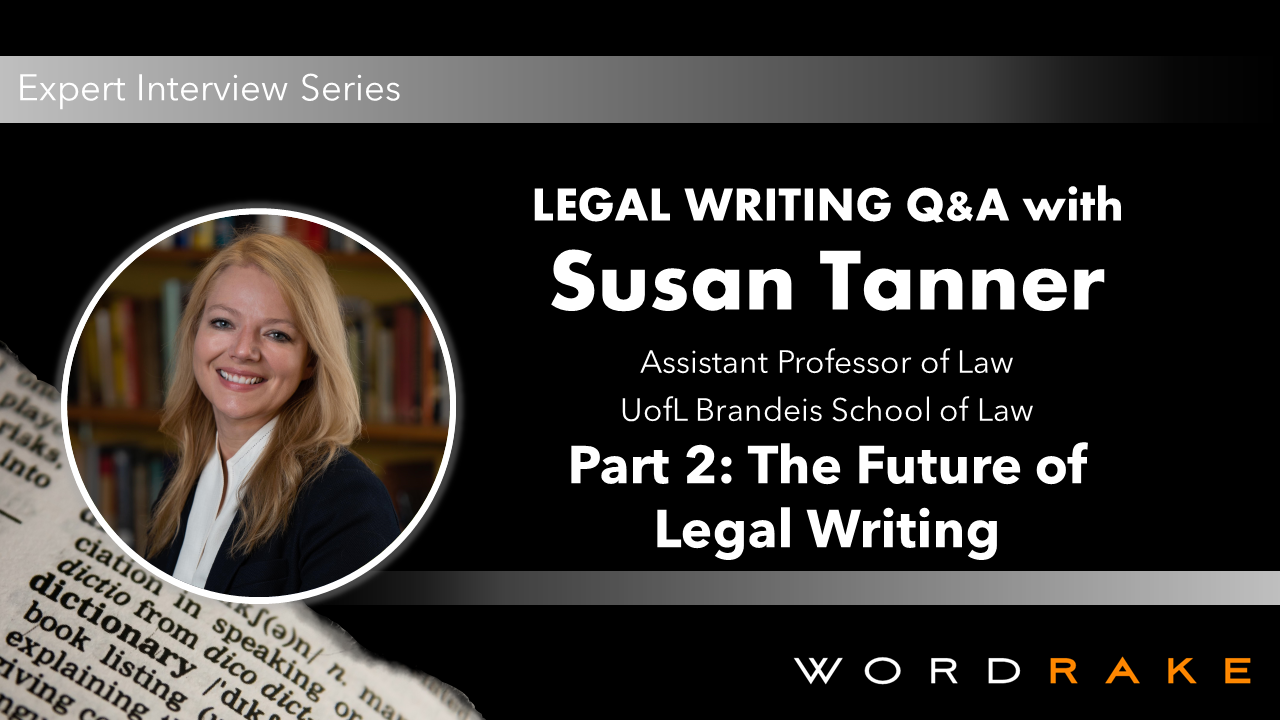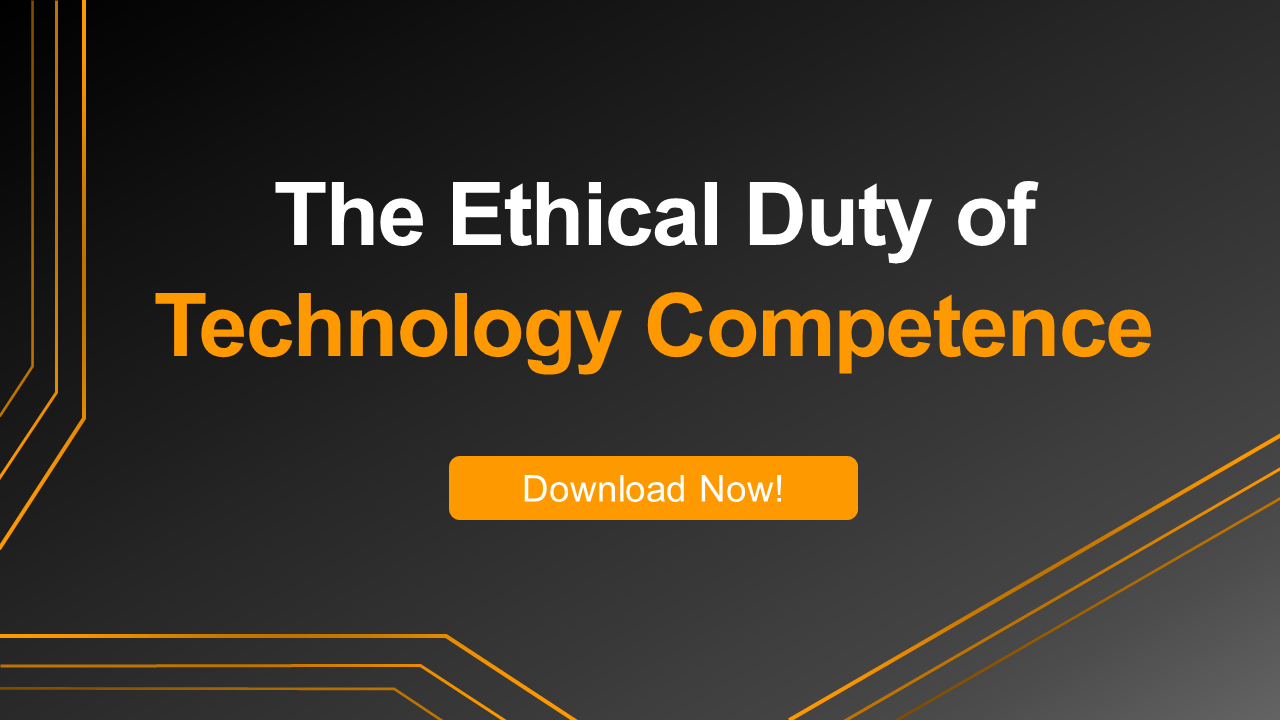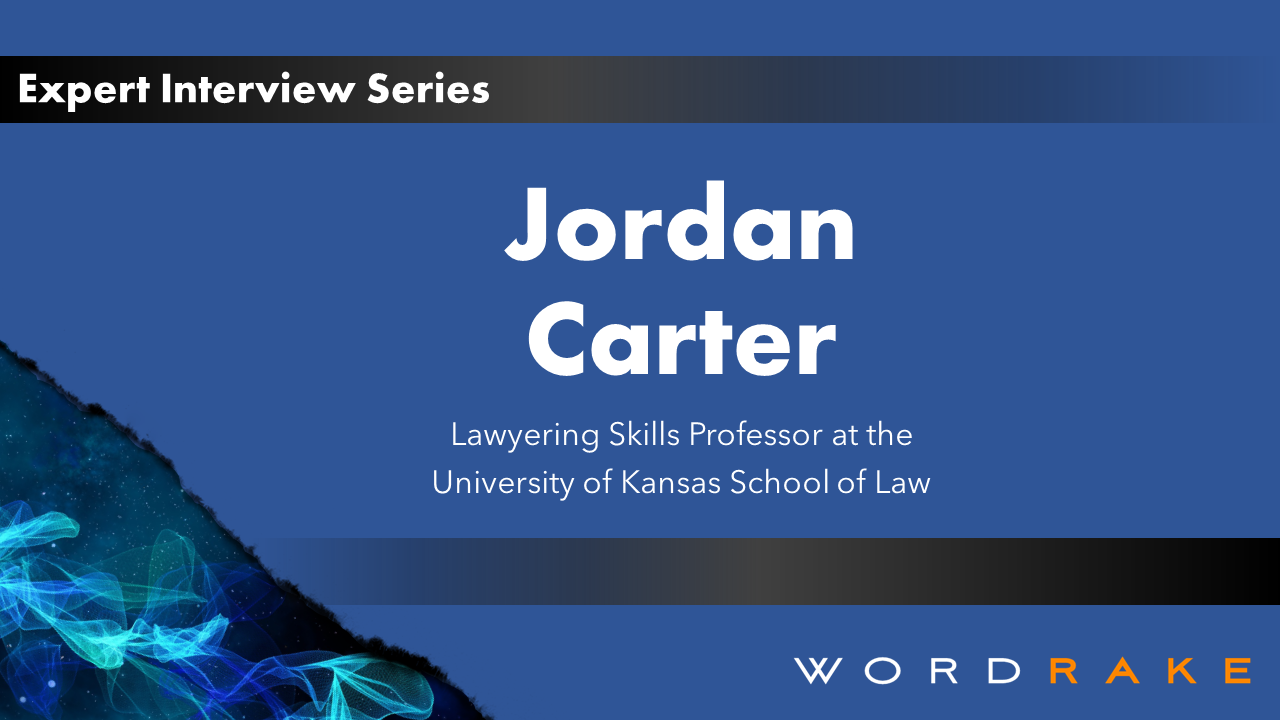The legal writing landscape evolves constantly, and lawyers and law professors alike must keep up. It's not just riding the wave of technological and linguist advancement, however. Professors like Susan Tanner of UofL Brandeis School of Law are shaping the future of legal writing. She shared her hopes for that future with us in the second half of her legal writing interview.
How would you like to see legal writing change in the next 10 years?
I’d like to see it get easier.
When I say "easier," it's important to unpack what that could mean in the context of legal writing. We could see legal writing become more accessible, making it more understandable to a broader audience, including non-lawyers. This doesn't mean oversimplifying complex legal concepts, but rather finding ways to communicate them more clearly. The actual process of legal writing could become more efficient, perhaps through better tools, improved methodologies, or more effective teaching methods.
There could be a continued push towards using plain language in legal documents, making them more readable without sacrificing precision. AI and other technologies might play a bigger role in assisting with routine aspects of legal writing, allowing lawyers to focus on higher-level analysis and argumentation. We could also simplify the citation process. Imagine a legal document where, instead of lengthy citations breaking up the text, we have hyperlinks and simplified in-text references that focus on only the important details. Readers could click to access the full text of cited materials instantly, while the main document remains clean and readable. And it would save writers time too.
Incorporating insights from fields like cognitive science, linguistics, and communication studies could lead to more effective legal writing strategies. A shift towards more reader-centric writing could make legal documents more engaging and easier to comprehend. Improved tools and methodologies for collaborative legal writing could make the process smoother and more efficient.
Making legal writing "easier" doesn't mean reducing its rigor or importance. Instead, it's about removing unnecessary complexity and focusing on effective communication. This shift could have significant benefits:
- improved access to justice, as legal documents become more understandable to the general public
- more efficient legal processes, as clearer writing leads to fewer misunderstandings
- better outcomes for clients, as lawyers can focus more on substance rather than struggling with form
- enhanced job satisfaction for legal professionals, as a traditionally challenging aspect of their work becomes more manageable
Ultimately, easier legal writing could lead to a more effective, accessible, and equitable legal system. It's an ambitious goal, but one that could have far-reaching positive impacts on the legal profession and society as a whole.
What advice would you give to legal professionals who are just starting out in the legal world?
We get caught between thinking we know all the answers and thinking we know nothing. The truth lies in between. When you're fresh out of law school, you might oscillate between feeling like you should have all the answers (after all, you've just spent years studying the law) and feeling completely overwhelmed by the realities of legal practice.
The truth is, your education has given you a strong foundation, but the legal world is complex and ever-changing. It's important to recognize the value of your knowledge while remaining open to learning and growth. Embrace a learning mindset, understanding that your legal education is just the beginning of a lifelong journey in the profession.
Be confident in sharing your insights, but don't be afraid to ask questions or seek clarification. Finding mentors can be incredibly valuable in helping you bridge the gap between academic knowledge and practical application. These experienced professionals can guide you through the nuances of legal practice that textbooks don't cover.
Approach your work with a mix of humility and confidence. Acknowledge that there's always more to learn, but also trust in the skills you've developed. The law often deals with grey areas, so learn to be comfortable with ambiguity and uncertainty. Stay curious and reflect on your experiences—this will help you grow and adapt in your career.
Remember, every experienced lawyer was once in your position. They've all had to navigate this balance between knowing and not knowing. Your journey is just beginning, and maintaining this balanced perspective will help you develop into a knowledgeable, effective, and adaptable legal professional.
What are your top 3 tips for helping legal professionals better plan their writing to meet deadlines?
First, clarify expectations. If they're looking for a short email or a link to a statute, don't spend 3 weeks writing a full memo.
Second, don't wait for motivation to strike. Start writing, and motivation will follow. Too often, we procrastinate waiting for the perfect moment or burst of inspiration. In legal writing, you can't afford that luxury. Get words on the page, and you'll find your rhythm.
Third, with practice, you'll get faster. You'll understand that every document serves a purpose, and that purpose is never to be the most beautifully crafted piece of prose ever written. Most of the most prolific writers I know are or have been lawyers. There's a reason for that – we're constantly writing, and that practice pays off in speed and efficiency.
In the age of AI, is good legal writing a valuable skill? What do you expect to change?
No matter what, we'll still be writing. Even if some of that is prompt engineering. Legal research requires more writing in the digital era than it did when we looked through books. (Luckily, I went to law school post-electronic database, so I never had to learn to research in the stacks.)
Good legal writing remains an invaluable skill in the age of AI, perhaps even more so than before. While AI technologies are rapidly evolving and impacting the legal field, they are augmenting rather than replacing the need for skilled legal writers. The core of legal work involves communication, analysis, and persuasion, all of which require strong writing skills.
Some writing tasks may shift. For instance, lawyers may need to learn how to effectively use AI tools, which itself requires clear, precise writing skills. AI tools may help with initial drafts, legal research, or proofreading, allowing lawyers to focus more on high-level analysis and strategy.
As basic writing tasks become easier with AI assistance, the bar for quality legal writing may be raised. Lawyers may be expected to produce more polished, well-researched documents in less time. Good legal writing will likely place even more emphasis on aspects that AI struggles with, such as creative problem-solving, empathy in client communication, and nuanced persuasion.
Lawyers will need to navigate new ethical challenges related to AI use in legal writing, such as ensuring the accuracy of AI-generated content and maintaining client confidentiality. Understanding the capabilities and limitations of AI may become an important part of legal writing, requiring lawyers to have some technical knowledge.
What do you say to lawyers who fear tech because they don’t want to seek “outside” help for their work?
When I first learned to code I was taught the most valuable resource for learning new technology. Google. Look it up; someone else has had the same question. And don’t be afraid to break technology.
How do you think about AI and Legal Writing? Is there an ethical way for legal writers to use AI in their practice?
We are always afraid to anthropomorphize computers, but I think with AI it makes sense to do so. When I give talks to practitioners, I tell them to treat AI like an incompetent intern. Never trust its results, no matter how certain it seems to be. Maybe that will change, but I hope not. Because of the nature of generative AI, hallucinations are a feature, not a bug. AI can produce convincing but inaccurate information, which makes human verification essential in legal writing.
It's important to remember that the lawyer, not the AI, is responsible for the content of legal documents. This includes ensuring accuracy, relevance, and ethical compliance. Lawyers have a duty to understand the technology they use, including being aware of AI's capabilities and limitations.
AI can be ethically used in legal research, helping to find relevant cases and statutes more efficiently. It can assist in reviewing large volumes of documents for discovery or due diligence. AI tools can help generate initial drafts of routine documents, which lawyers can then review and customize. It can also aid in proofreading and editing, identifying grammatical errors, inconsistencies, or potential areas for improvement in legal writing. The key is to leverage AI as a tool to augment human expertise, not replace it.
How do you address linguistic diversity, neurodiversity, and other forms of diversity in your classroom?
It's important to recognize that complaints about legal writing have been around for a long time. Traditionally, legal education, including writing instruction, catered to a relatively homogeneous group of students—often from elite backgrounds with similar experiences. This limited diversity didn't just affect the classroom; it influenced the development of legal writing itself.
Today, our classrooms are increasingly diverse—linguistically, culturally, and in terms of cognitive styles. As a sociolinguist, I see this diversity as an opportunity to enrich and improve legal writing. I try to learn as much from my students as I teach them. Their varied perspectives and experiences can inform new approaches to legal communication.
To address this diversity, I use a variety of teaching methods and provide multiple entry points for learning. Generative AI is becoming a valuable tool in this effort. It can help with universal design in our curriculum, create customized exercises for different learning needs, and offer real-time language support for non-native English speakers. However, AI should supplement, not replace, human instruction. The goal is to use technology to enhance our ability to address diversity while maintaining crucial human elements of teaching and mentoring.
Ultimately, I believe legal writing will improve when it better serves the needs of all those who use it—not just legal professionals, but clients and the public from all backgrounds. By embracing diversity in our classrooms and in the legal profession, we can evolve legal writing to be more inclusive, clear, and effective for everyone.
About Dr. Susan Tanner
Dr. Susan Tanner is an Assistant Professor of Law at UofL Brandeis School of Law. Her research and teaching primarily focus on Law and Language and Legal Writing. She has taught courses in legal research and writing, lawyering skills, law, rhetoric and public policy, and privacy law.
Her academic background is diverse, holding a master's in Rhetoric and Composition from Arizona State University, a JD from Indiana University Maurer School of Law, and a PhD in Rhetoric from Carnegie Mellon University. At Carnegie Mellon, Dr. Tanner studied Rhetoric and Corpus and Computational Linguistics. She was honored as both an A.W. Mellon Digital Humanities Fellow and a Presidential Fellow, which allowed her to explore the intersection of technology and language in legal contexts. Dr. Tanner's most recent research has been in enthymematic/syllogistic reasoning and narrative in the law. This work reflects her ongoing interest in the intersection of logic, language, and legal argumentation
Dr. Tanner describes herself as a Math and Science geek at heart and admits to being a reluctant and labored writer. However, she's found that her current research allows her to ask and help answer truly interesting questions. This aspect of her work resonates with what initially drew her to Physics as an undergraduate and now fuels her passion for research and writing in the legal field. Her unique background bridges the gap between traditional legal scholarship and emerging digital methodologies, bringing a fresh perspective to legal education and research.
About the Legal Writing Interview Series
WordRake founder Gary Kinder created the software to help legal writers edit for brevity and simplicity. In continued dedication to the most effective legal writing, this Series highlights the experience and advice of experts from professors to writing coaches to litigators. Looking to help boost your legal writing skills? Get a free 1-week trial of WordRake here.








